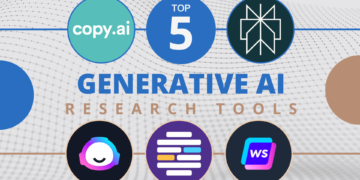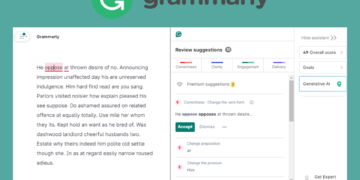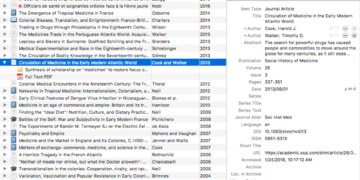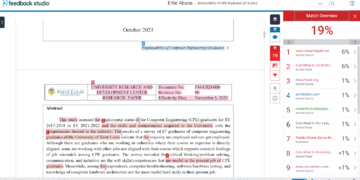Effective time management is a game-changer for researchers and academics who often juggle multiple projects, tight deadlines, and complex writing tasks. Mastering time management not only helps in meeting deadlines but also improves the quality of research writing. In this comprehensive guide, we’ll explore the top 5 productivity hacks specifically designed to help busy academics manage their time efficiently and enhance their research writing process.
1. Create a Detailed Research Plan
Why It Matters
A detailed research plan provides a clear roadmap for your research activities, helping you stay organized and focused. Without a plan, it’s easy to become overwhelmed by the multitude of tasks involved in research writing.
How to Implement
- Outline Your Research Goals: Define your research objectives, key deliverables, and milestones. What are the major tasks that need to be completed, and by when?
- Break Down Tasks: Divide your research and writing process into smaller, manageable tasks. For example, literature review, data collection, data analysis, and writing each section of your paper.
- Set Deadlines: Assign deadlines to each task and milestone. Use a Gantt chart or project management tool to track your progress and stay on schedule.
Tools to Use
- Trello or Asana for task management
- Microsoft Project or Smartsheet for creating Gantt charts
2. Implement the Pomodoro Technique
Why It Matters
The Pomodoro Technique helps you maintain focus and productivity by breaking work into intervals, typically 25 minutes, followed by a short break. This method prevents burnout and keeps you motivated.
How to Implement
- Set a Timer: Work on a research task for 25 minutes, then take a 5-minute break. After four intervals, take a longer break of 15-30 minutes.
- Focus on One Task: During each Pomodoro interval, concentrate solely on a single task to maximize efficiency.
- Adjust as Needed: Modify the length of intervals and breaks to fit your personal productivity patterns.
Tools to Use
- Focus Booster or Pomodone for tracking Pomodoro sessions
- Be Focused or Forest for maintaining focus and minimizing distractions
3. Use Time Blocking for Research Tasks
Why It Matters
Time blocking involves allocating specific blocks of time for different tasks or activities. This technique helps you dedicate uninterrupted time to each aspect of your research writing and minimizes multitasking.
How to Implement
- Create a Time Block Schedule: Allocate specific time blocks for tasks such as literature review, data analysis, writing, and editing. Be sure to include time for meetings and breaks.
- Stick to the Schedule: Adhere to your time blocks as closely as possible. Adjust if necessary, but avoid letting one task overflow into another’s time block.
- Review and Adjust: Regularly review your time block effectiveness and adjust as needed to improve productivity.
Tools to Use
- Google Calendar or Microsoft Outlook for scheduling time blocks
- Clockify or Toggl for tracking time spent on each task
4. Prioritize Tasks with the Eisenhower Matrix
Why It Matters
The Eisenhower Matrix helps prioritize tasks based on their urgency and importance. By focusing on what truly matters, you can avoid wasting time on low-priority tasks and ensure that critical research activities are completed on time.
How to Implement
- Categorize Tasks: Divide your tasks into four categories:
- Urgent and Important
- Important but Not Urgent
- Urgent but Not Important
- Neither Urgent Nor Important
- Focus on Key Tasks: Prioritize tasks that are both urgent and important, and schedule time for important but non-urgent tasks to prevent them from becoming urgent.
- Delegate and Eliminate: Delegate tasks that are urgent but not important and eliminate tasks that fall into the final category.
Tools to Use
- Eisenhower Matrix apps like Eisenhower or Priority Matrix
- Todoist or Wunderlist for task management and prioritization
5. Leverage Automation and Productivity Tools
Why It Matters
Automation and productivity tools can streamline repetitive tasks and improve efficiency. By automating routine processes, you can save time and focus more on critical aspects of your research writing.
How to Implement
- Automate Data Collection: Use tools to automate data collection and analysis, such as web scraping tools or data analytics software.
- Use Citation Managers: Employ citation management tools to organize references and generate citations automatically.
- Integrate Workflow Tools: Connect various productivity tools (e.g., calendar, task manager, note-taking apps) to create a cohesive workflow.
Tools to Use
- Zotero or Mendeley for managing references
- Zapier or IFTTT for automating workflows
- Evernote or Notion for organizing notes and research
Conclusion
Mastering time management is essential for achieving productivity and success in research writing. By implementing these top 5 productivity hacks, you can streamline your research process, enhance your writing efficiency, and ultimately produce high-quality research work. Embrace these techniques and watch as your productivity and research outcomes reach new heights.





































